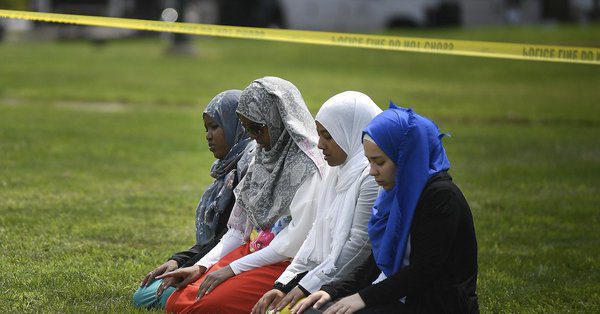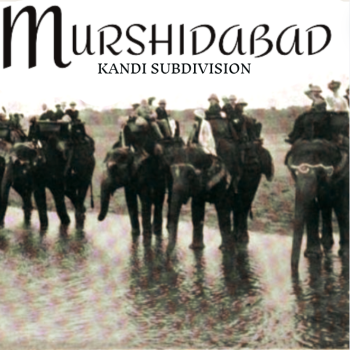 That Muslim women do not pray or fast while menstruating is a well-established practice, the reasons for which have been laid out in many articles. But, what does the Quranic scripture have to say about it?
That Muslim women do not pray or fast while menstruating is a well-established practice, the reasons for which have been laid out in many articles. But, what does the Quranic scripture have to say about it?
A few days ago, I read an article titled “Why does the menstruating woman not pray or fast?” by Nancy Qualls-Shehata. “The short answer” to that question, Qualls-Shehata argues, is because “God said so.” I, however, have my doubts. Here I will try to explain several reasons why I doubt that God did not want women to pray during their menses.
To start with, if a Muslim wants to know what God says about any topic, she needs to look at the Quran. And when we read the Quran (Baqara, 222), we see that Muslims asked Prophet Muhammad about menstruating women, and God answered their questions in the following way: “And they ask you about menstruation. Say, ‘It is harm, so keep away from wives during menstruation. And do not approach them until they are pure. And when they have purified themselves, then come to them from where Allah has ordained for you.’”
Muslim scholars have, in agreement, interpreted this verse to be related to sexual intercourse and concluded that men are not allowed to have sex with their wives during the period of menstruation. But what about the verses that prohibit Muslim women from praying and fasting? Well, there are no such verses in the Quran.
God says nothing about menstruating women not praying during their menses. Now, one may question why God did not say anything concerning prayers but mentions limitations about sexual intercourse in this period. Well, the reasonable answer is that He wanted women to stay away from sexual intercourse, while He did not want women to skip prayers on their menses. So, I see no reason to assume that “God said so.”
The reasoning for women not praying or fasting stems from hadiths (believed-to-be sayings of the Prophet Muhammad). There are hadiths in Bukhari, Muslim and Abu Dawud that prohibit menstruating women from praying. Now, even if we put the discussion regarding the reliability of the hadith sources aside, those hadiths do not make much sense. That is because in the aforementioned verse, God answers a question asked to Prophet Muhammad about menses. If the Prophet himself had known the answer, he would not have conveyed the question to God, but he would have answered it directly. But, if Prophet Muhammad directed the question to God as the informed authority on the topic rather than dealing with it alone, why should we assume that God’s answer in the Quran is inadequate?
What makes us think that God answered the part about sexual intercourse and left out the part about prayers? Besides, as the Quran states, God is the only lawgiver and judge on religious issues, and Prophet Muhammad is obliged to follow God’s rule detailed in the Quran (An’am, 114): “Then is it other than Allah I should seek as judge while it is He who has revealed to you the Book explained in detail?”
There is yet another reason that makes me question the Islamic origins of prayer ban during menstruation. According to the Quran (Ankabut, 45), one of the reasons why Muslims were instructed to pray was to prevent them from wrongdoing. If prayer has such a function, why would God prevent women from praying and reading the Quran during their menses?
Is it fair to let men pray and thus protect themselves from wrongdoing, while putting women in a vulnerable position for 4-6 days a month for several decades? And do not forget, in the Quran, Muslims are asked to be steady in their prayers and even keep their prayers during times of danger and war. God explains how to pray during times of war in detail, but He does not mention the ban on praying during times of menstruation, which, in a regular lifespan, happen much more frequently than fighting in a war.
It just does not make any sense to me.
Despite these points I have made, one may still argue that women should not pray, fast or even enter the mosques during their menses. But, I argue that this attitude stems from hadiths, which were collected two centuries after the Prophet Muhammad’s death, rather than the Quran.
Consider the fact that even the farewell sermon of Prophet Muhammad, which was witnessed by thousands of Muslims, has three different and contradictory versions. In one version the Prophet left the Quran and Sunnah (the deeds and sayings of the Prophet) for Muslims to follow; in the second version the Prophet supposedly left the Quran and Ahlul-Bayt (family members of the Prophet) for Muslims to follow; and in the third one the Prophet left only the Quran for Muslims as a guide. If this is the case for the farewell sermon, I think it is quite clear why hadith books should not be seen as reliable as the Quran as a religious source.
Still, one is free to base her religious beliefs and actions on conjectures despite the Quran’s warning in Sura Jonah, verse 36: “Most of them just follow conjecture; indeed conjecture is no substitute for the truth.”
















